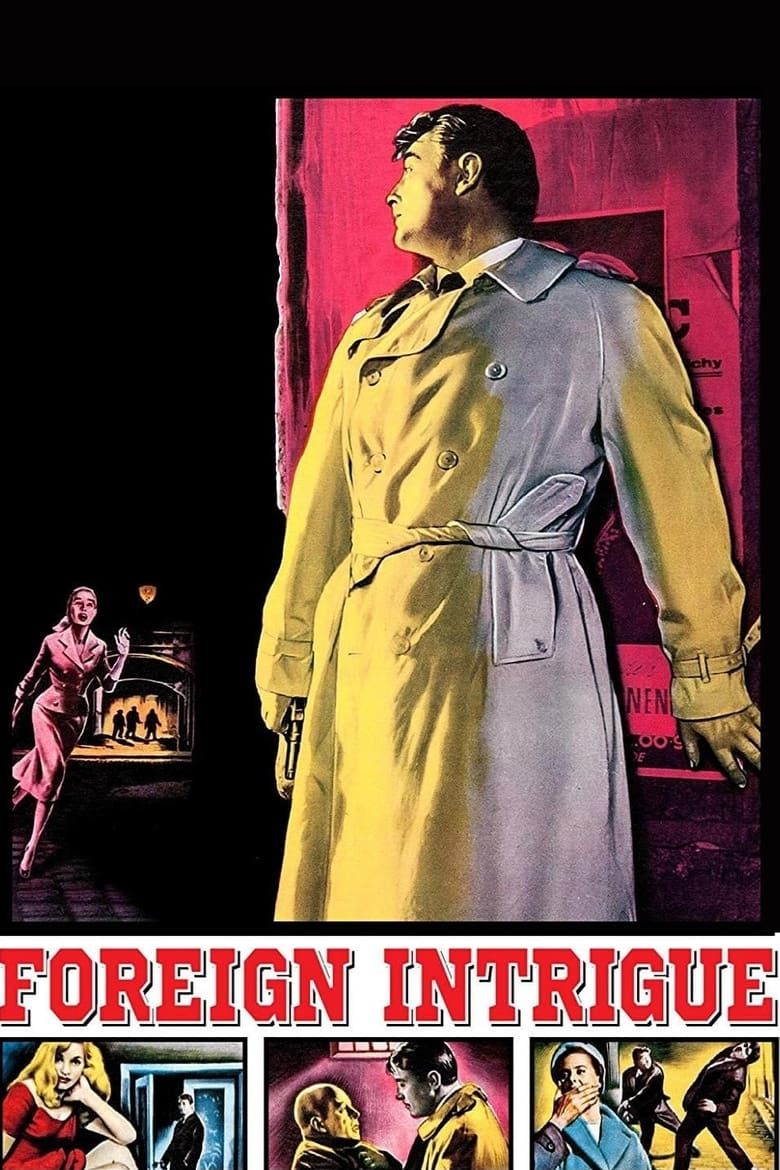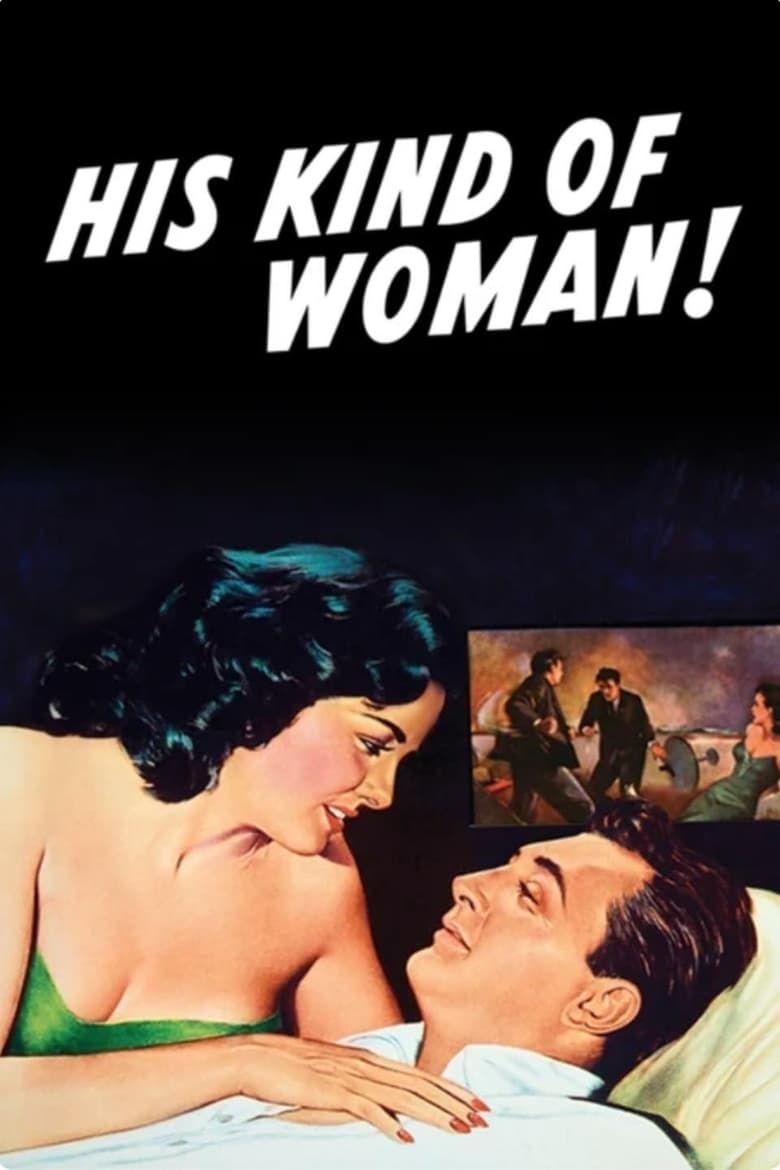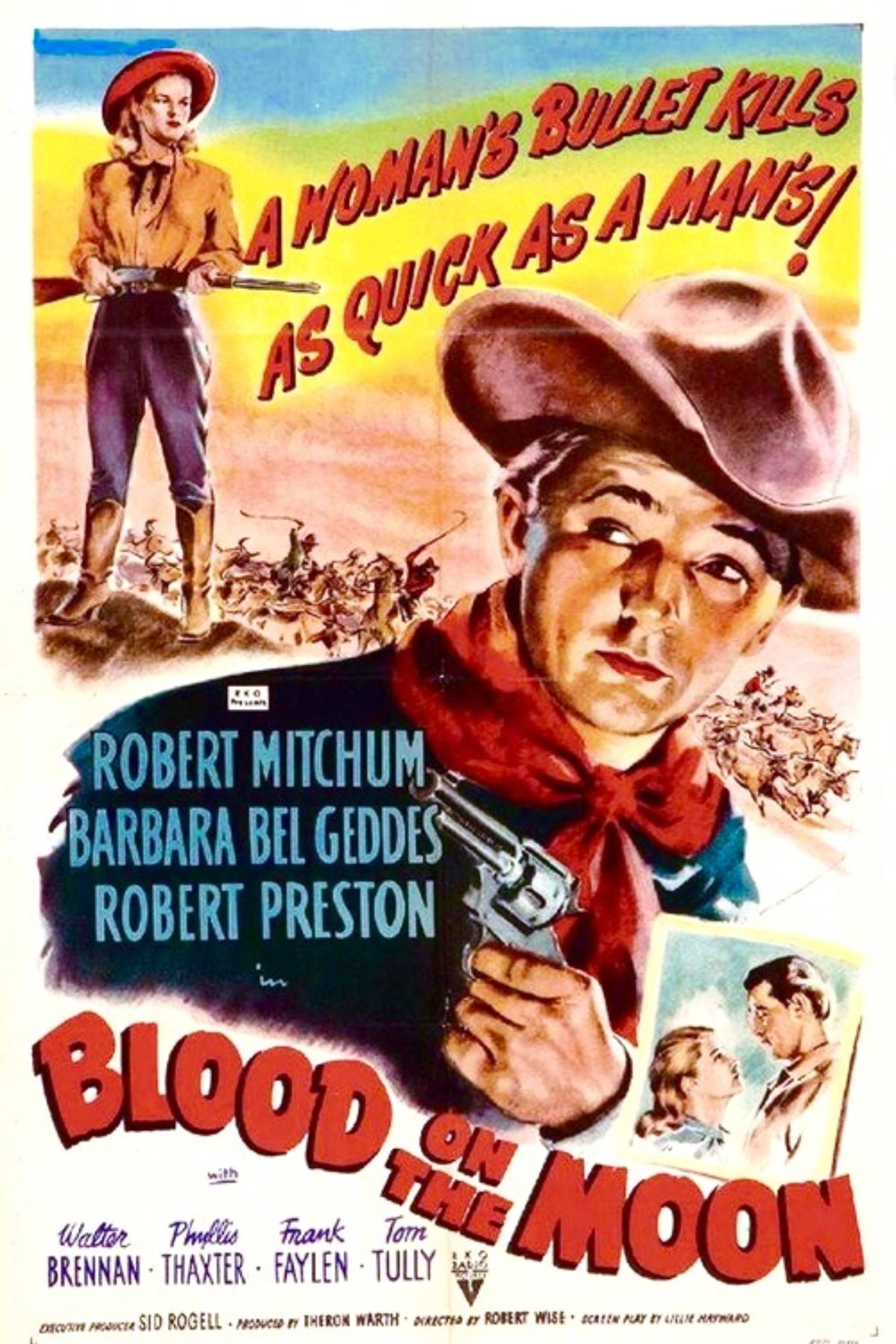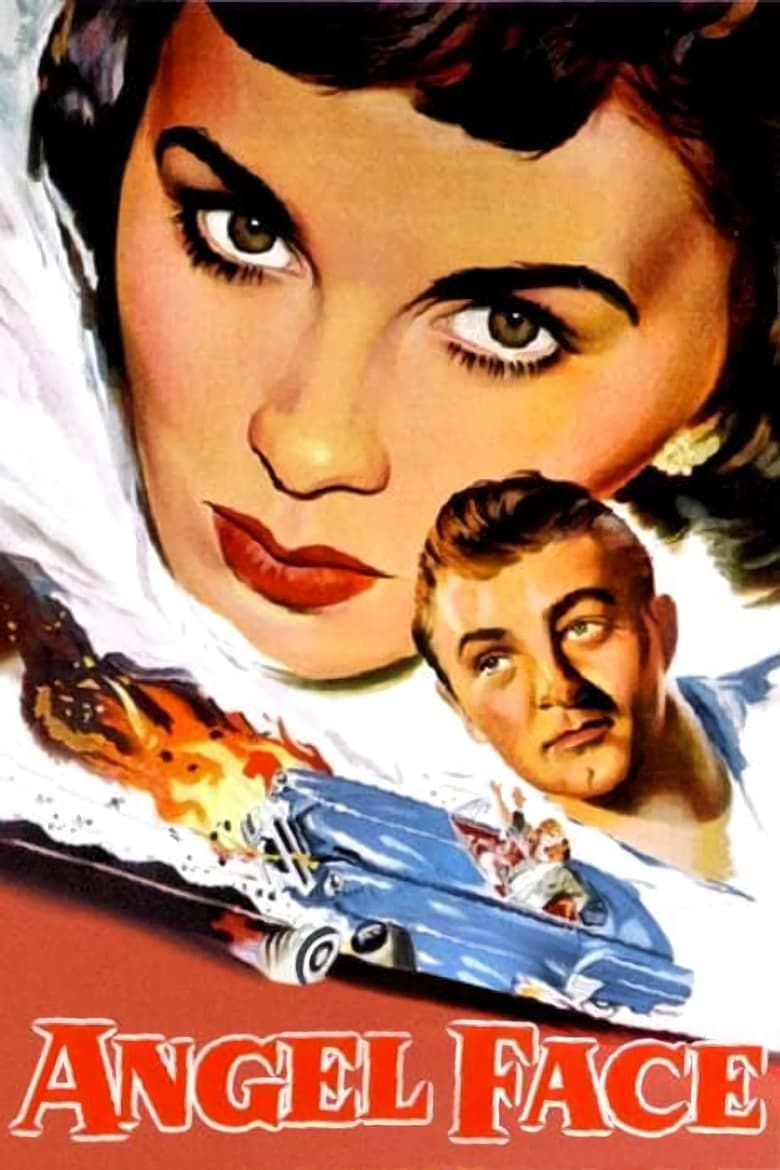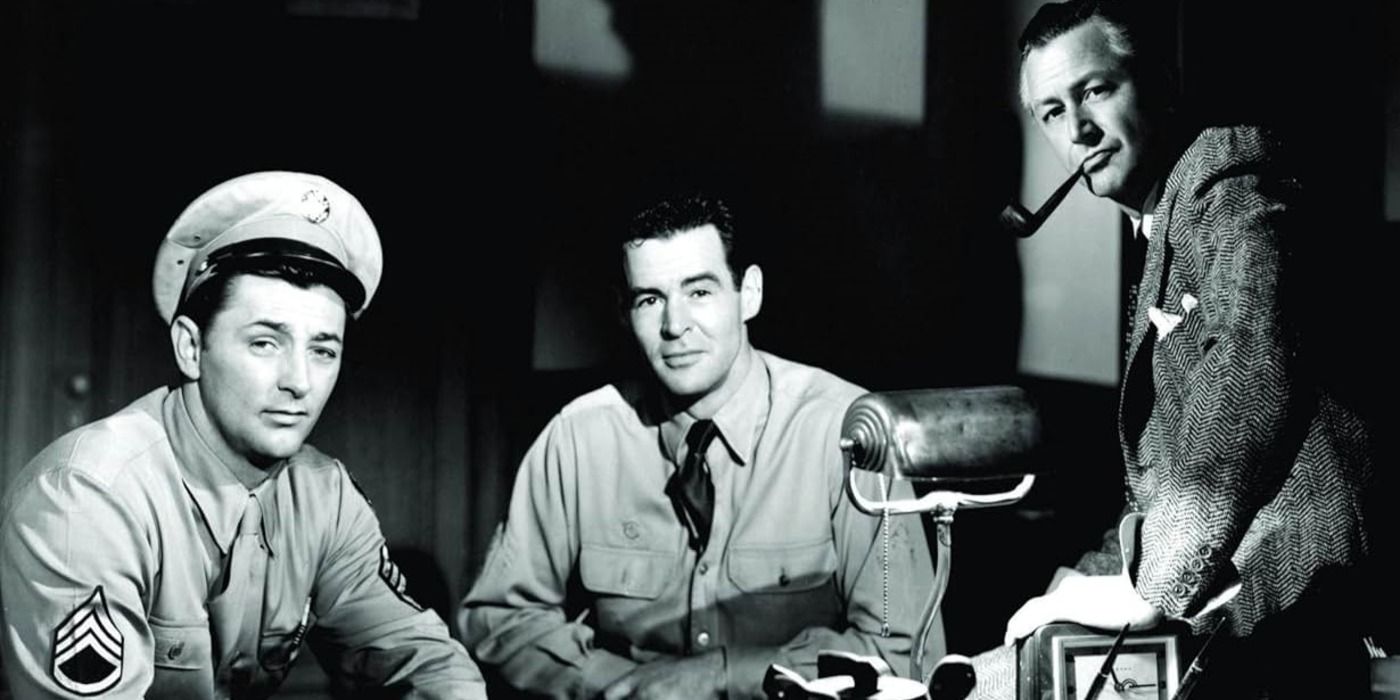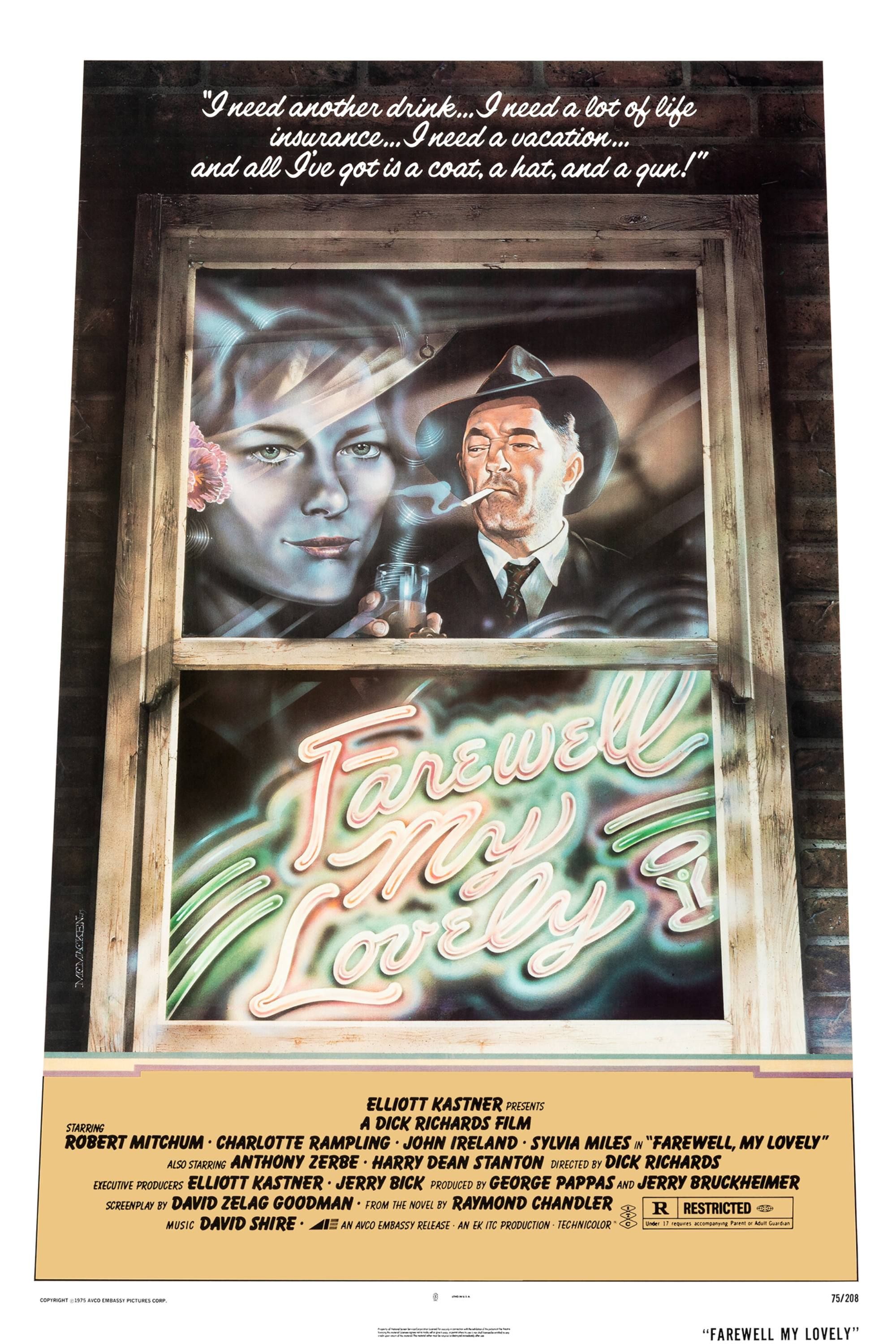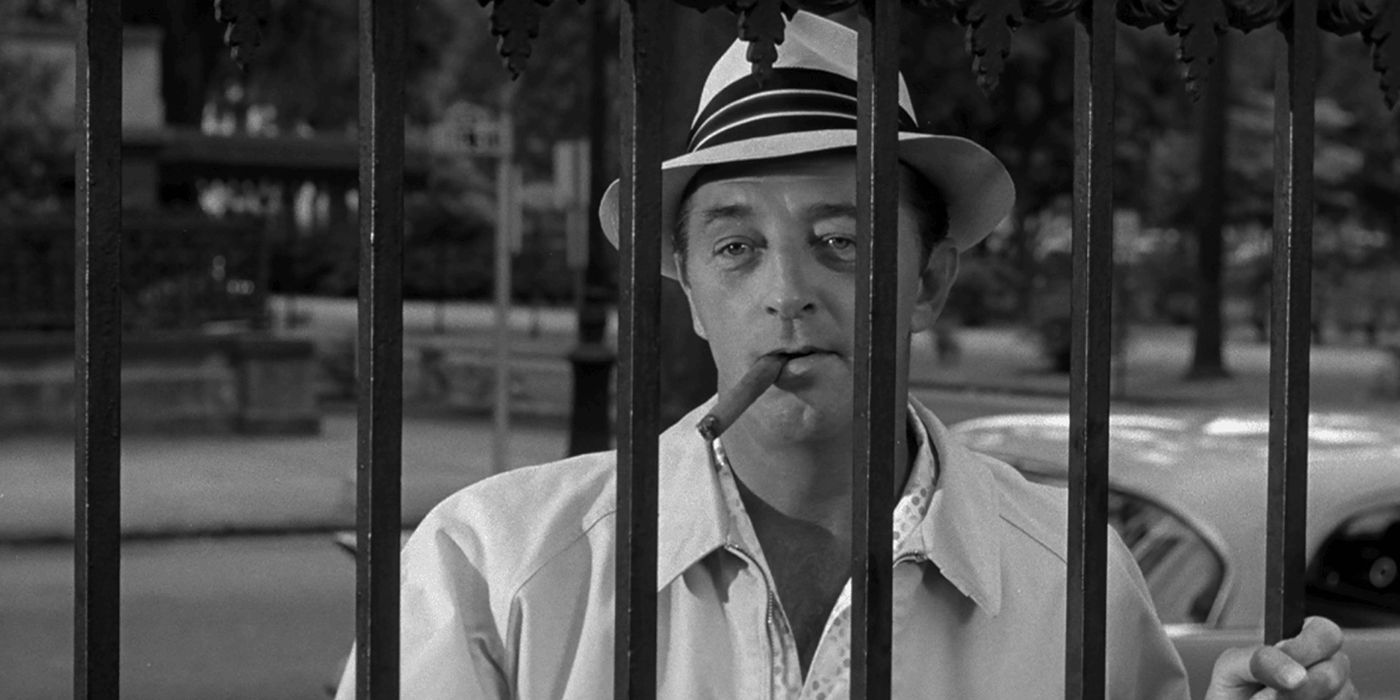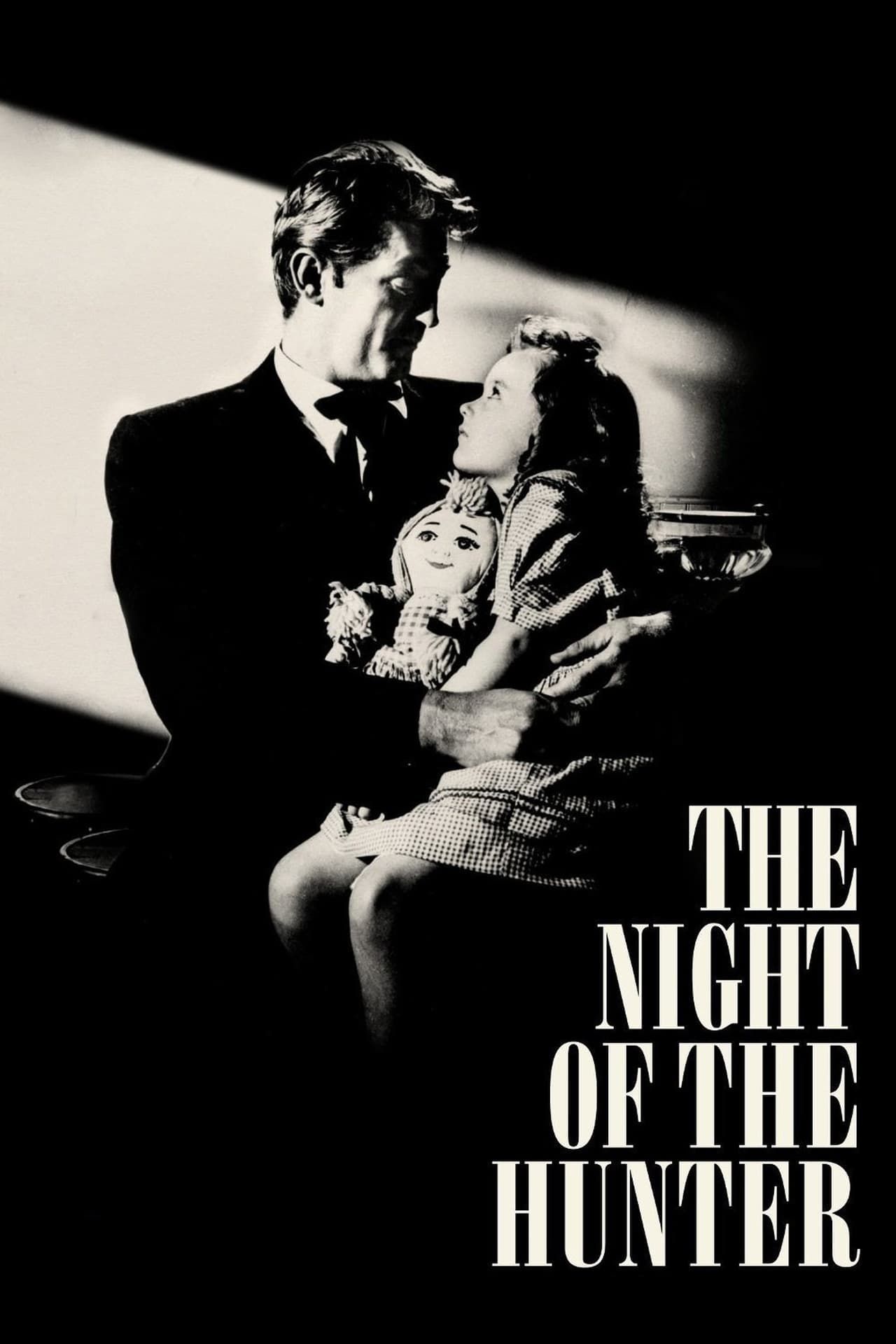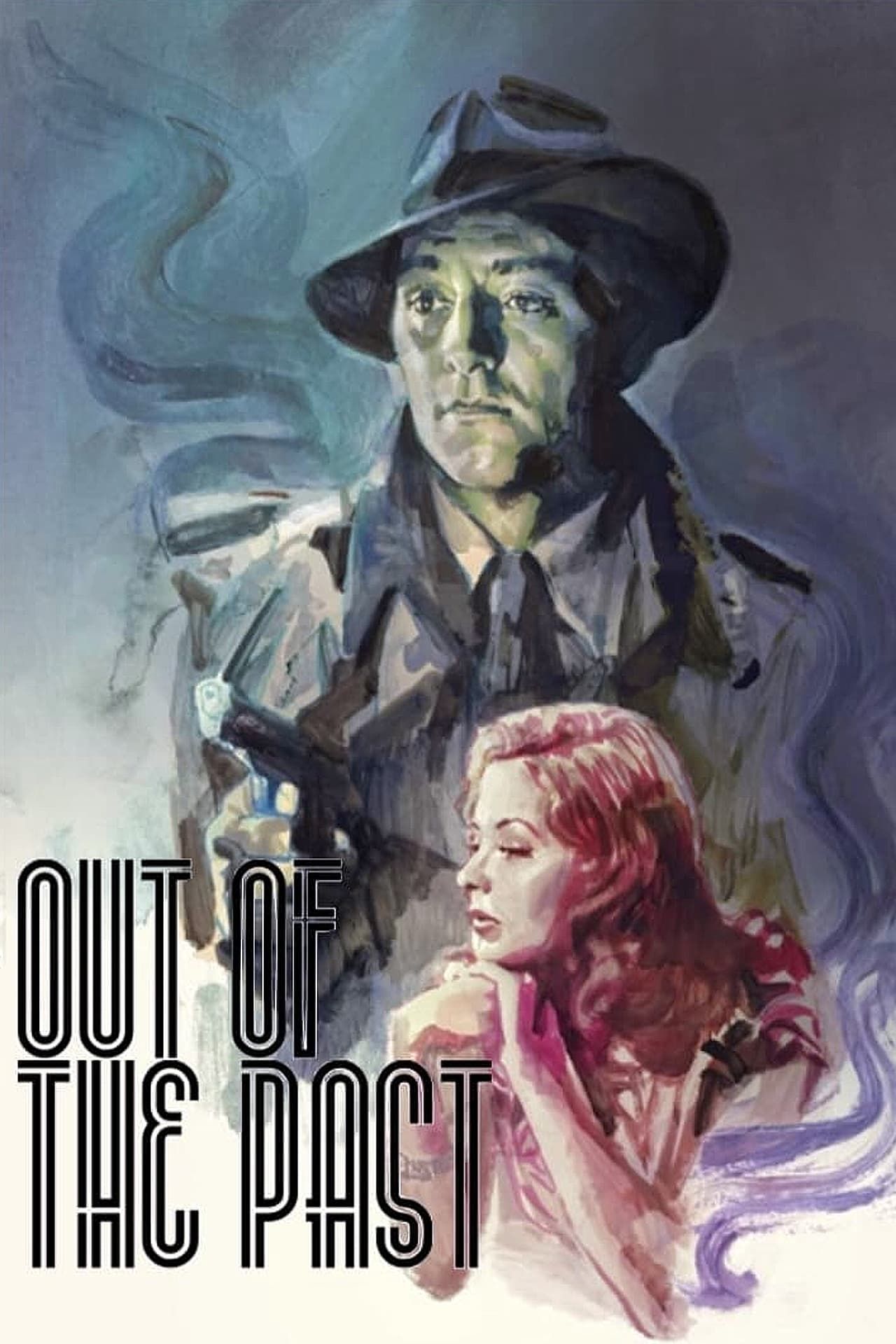Few names were as associated with a particular genre as Robert Mitchum was with film noirs, having starred in some of the best noir movies ever made. From his heyday in the 1940s right through his acclaimed career, Mitchum’s intense characterization and skill for portraying menacing, morally dubious characters made him the perfect noir actor who could walk the fine line between villain and hero. As one of the few actors who could give Humphrey Bogart a run for his money when portraying Detective Philip Marlowe, Mitchum’s filmography was packed with noir classics.
Mitchum excelled in black-and-white noir roles and brought a sinister power to psychologically rich genre-blended noir releases. With a recognizable deep voice, piercing weary eyes, and an old-timey handsomeness that made him stand out among the biggest action stars of the 1950s, Mitchum’s career was filled with undisputed classics and first-rate Hollywood features. With the intense charisma and striking aura required to make timeless cinema, Mitchum was among the greatest of all the noir movie stars.
10 The Big Sleep (1978)
Robert Mitchum as Philip Marlowe
Robert Mitchum’s second outing as Raymond Chandler’s Detective Philip Marlowe did not have the same excitement as Farewell, My Lovely from three years before. A lesser release than the iconic 1946 version starring Humphrey Bogart, Mitchum’s attempt had the difficult fate of being unfamiliar compared to perhaps the defining film noir movie of all time. However, The Big Sleep was notable as the only time an actor had played Marlowe twice, and this more modern release allowed for the book’s themes of homosexuality, pornography, and nudity to be explored in a way that wasn’t possible in the 1940s.
This version of The Big Sleep moved its story from the original 1940s Los Angeles setting to 1970s London, which helped differentiate it from Bogart’s depiction. However, at 60 years old during the filming, Mitchum felt far too old to be playing 33-year-old Marlowe from Chandler’s original book. While there’s a lot to enjoy for film noir lovers, this version of The Big Sleep was one of Mitchum’s moreunderwhelming noir movies.
9 Foreign Intrigue (1956)
Robert Mitchum as Dave Bishop
The filmography of Robert Mitchum was packed with hidden gems that haven’t endured in the public consciousness in the way his most famous films have. One prime example of this was Foreign Intrigue, a thrilling spy story that played out like a prototype James Bond as Mitchum portrayed the suave Dave Bishop, a press agent who found himself embroiled in a massive conspiracy after his millionaire employer died. With plenty of style, Mitchum exuded movie star charisma in this beautifully photographed noir mystery in color.
As one of the first movies to be adapted from a TV series, Foreign Intrigue was based on the European espionage series of the same name that ran for 156 episodes during the early 1950s. Mitchum brought incredible energy to this twist-filled mystery, which began with a death on the French Riviera. As a slow-building story with plenty of suspense, this underappreciated noir deserves more attention from modern viewers.
8 His Kind Of Woman (1951)
Robert Mitchum as Dan Milner
While the production of His Kind of Woman was a haphazard affair that saw extensive rewrites, recasting, and reshooting after the director John Farrow thought he had delivered the finished film (via Indiewire), it still stood as an excellent onscreen pairing between Robert Mitchum and Jane Russell and made for fantastic comedic film noir. As the story of a deported gangster’s plan to re-enter the US, a gambler’s mysterious job for $50,000, and hidden agendas at a luxurious Mexican hotel, His Kind of Woman was packed with twists and turns.
While His Kind of Woman still makes for thrilling viewing all these years later, the behind-the-scenes details were also just as interesting. Although Farrow delivered his final film, RKO studio bosses brought in Howard Hawks to continue work on the movie, which ballooned its costs and led to losses equal to its bloated $850,000 budget. While His Kind of Woman may not have been a financial success, it was a creative triumph for Mitchum and yet another engaging entry to his film noir resume.
7 Blood On The Moon (1948)
Robert Mitchum as Jim Garry
Blood on the Moon presented a psychologically rich 88-minute adventure. Directed by Robert Wise and starring Robert Mitchum, the story revolved around an Old West unemployed cowhand named Jim Garry, his dishonest friend Tate Riling, and a dispute between homesteaders and cattleman John Lufton. Based on the novel Gunman’s Chance by Luke Short, Blood on the Moon was a suspenseful story that managed to blend the disparate genres of film noir and classic Western.
As an intriguing mishmash of genres that blended the best of both styles, Blood on the Moon showcased why Mitchum was one of the greatest stars of his era, as he was able to capture the leading man energy needed for the role while simultaneously embodying the darkness below the surface. With crisp black-and-white camera work, Blood on the Moon perfectly encapsulated the dark shadings and engaging use of shadows that made the greatest film noirs work so well.
6 Angel Face (1952)
Robert Mitchum as Frank Jessup
There was a sinister energy to the incredible Angel Face starring Robert Mitchum. While Mitchum gave an impressive turn as the ambulance driver turned chauffeur Frank Jessup, it was Jean Simmons as Diane Tremayne who truly stood out as a more conniving and shockingly self-destructive character than the average noir femme fatale. With a story involving a man caught up in the untoward schemes of a dangerous woman, Angel Face felt more akin to a modern thriller of deceit within matrimony, à la Gone Girl, than it did a classic 1950s film noir.
Angel Face received mixed reviews upon release and was maybe a few decades ahead of its time for the way it blended psychological intrigue with the selfish determination of its villainous character. As an intensely Freudian piece of filmmaking, Angel Face often doesn’t get the attention it deserves and was a notable high point in Mitchum’s career. With destructive sexuality behind its murderous narrative, Angel Face was a masterwork by director Otto Preminger.
5 Crossfire (1947)
Robert Mitchum as Sgt. Peter Keeley
Appropriately for a film made in the years following World War II, Crossfire addressed the prescient theme of antisemitism and starred three actors with the same name, Robert Young, Robert Mitchum, and Robert Ryan. As a film noir drama about a murdered man and the soldiers trying to determine the reason why, Crossfire explores the complex motives, underlying prejudices, and lingering trauma of veterans following the war. With Mitchum as a PTSD-suffering soldier, Crossfire was a layered film that had a lot more to say than its simple whodunnit premise first suggests.
As a film with a clear agenda to spread its anti-discrimination message, Crossfire did so by utilizing classic noir tropes and an engaging style complete with low-key lighting and shadowy characters. Based on Richard Brooks’ 1945 novel The Brick Foxhole, the main theme of Crossfire was the way that ignorance can fuel bigotry, and although its execution might feel heavy-handed, considering the historical context, it was a timely and important statement to make.
4 Farewell, My Lovely (1975)
Robert Mitchum as Philip Marlowe
After the success of Chinatown in 1974, it seemed the film noir genre had something of a revival during the 1970s, as shown by Robert Mitchum’s excellent portrayal of Detective Philip Marlowe in Farewell, My Lovely. While it was always going to be difficult to differentiate the character from Humphrey Bogart’s iconic portrayal, Mitchum’s status as a true legend of the genre meant he was the perfect choice to play an older and more grizzled version of Marlowe.
Farewell, My Lovely was a campy homage to a bygone version of filmmaking as it echoed the appeal of the classic days of noir within the Hollywood studio system while also updating it for modern times. By leaning heavily into the hard-boiled style of Raymond Chandler’s original novel, Mitchum proved that there was still space for Marlowe within the New Hollywood era of filmmaking. A great performance was made even better through Mitchum acting opposite Charlotte Rampling’s exceptional work as the femme fatale seductress Helen Grayle.
3 Cape Fear (1962)
Robert Mitchum as Max Cady
Robert Mitchum conjured his sinister side as the violent psychopath and ex-con named Max Cady in the noir classic Cape Fear. As a psychological thriller that’s packed with noir elements, this story of a killer out for revenge was a truly dark tale with undercurrents of a potential sexual assault against a child. While the reception at the time of release was cautiously positive, the film undeniably succeeded as a tension-filled affair, and Mitchum gave one of his most impressively menacing performances.
With a suspenseful script that built towards its thrilling conclusion, Cape Fear has gained a significant place in pop culture and was even parodied in an episode of The Simpsons titled “Cape Feare” as Sideshow Bob embodied Cady’s nature as he tried to murder Bart. Cape Fear was also remade by Martin Scorsese with Robert De Niro in Mitchum’s role. While the remake was an engaging retelling, Mitchum’s performance still stood as the definitive version of this story.
2 The Night Of The Hunter (1955)
Robert Mitchum as Preacher Harry Powell
While The Night of the Hunter has retroactively been deemed a film noir classic, things were not so straightforward when it was released in 1955. This tense story of a misogynistic serial killer posed as a preacher during the Great Depression was far darker than the average thriller from this era, and Robert Mitchum’s impeccable performance was so intense that it took several decades for the true power of this film to gain its belated appreciation. With an expressionistic style influenced by silent movies, The Night of the Hunter became a cult classic and a defining role in Mitchum’s career.
However, the damage had already been done, and director Charles Laughton never directed another movie due to The Night of the Hunter’s failure with critics and at the box office. This tragedy of cinema was made all the more heartbreaking as Laughton never got to see the retroactive appreciation for his movie and its status today as an undisputed classic. Mitchum brought such a menacing air to his characterization of Powell that it remains one of the all-time great villains nearly seven decades after its release.
1 Out Of The Past (1947)
Robert Mitchum as Jeff Bailey
Out of the Past was among the greatest film noirs of all time and stood as Robert Mitchum’s crowning achievement within the genre. With a complex, fatalistic storyline, dark cinematography, and a classic femme fatale, Out of the Past ticked all the boxes when it came to noir tropes and clichés and did it with such style and substance that the film never feels formulaic. With incredible supporting performances from Jane Greer and Kirk Douglas, Out of the Past has earned its spot as an essential RKO movie of the 1940s.
As the story of a man trying to start again in a new town with a new job and a new girl, Mitchum’s characterization of Jeff Bailey hints at the weary nature of a man who wants to just leave his past behind. As tension builds and his old life creeps back to haunt him, Out of the Past explores the impossible challenge of running away from it all. As an actor who excelled time and again in film noirs, Robert Mitchum laid it all bare in Out of the Past.
Source: Indiewire



